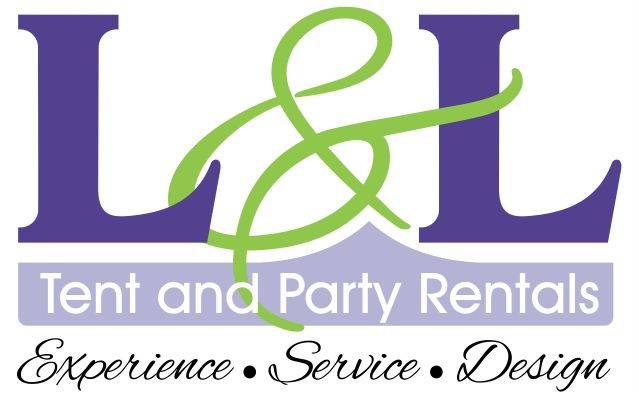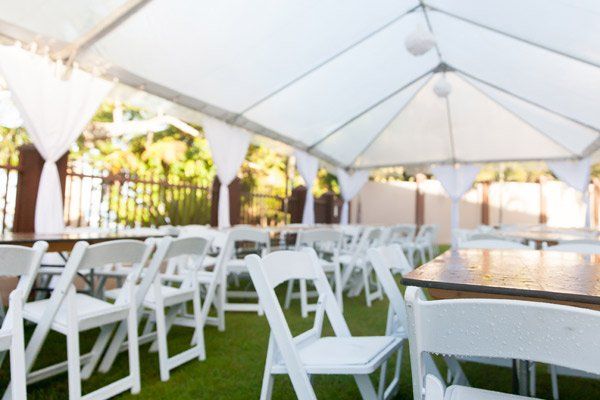If you're having a wedding at a venue that doesn't have an indoor option, you may need to rent a tent
in case of bad weather. This process may be more complicated than you realize, so keep the following things in mind.
Venue Rules and Regulations
Some venues have rules regarding which types of tents are allowed on the property, how big they can be, where they can be located, and how soon in advance of the event you can set them up. Noise restrictions may also be a consideration. You don't want to choose your ideal tent and then realize it isn't allowed at your venue.
Local Permits
In some towns, a permit is required before setting up a large tent like those used for weddings. The venue or the tent company will often deal with this, but check with them to make sure local regulations are being followed.
Type of Tent
Pole tents typically cost less than frame tents, but then you need to deal with poles in the middle of the tent and stakes and anchor ropes around the outside of the tent. Pole tents are quicker to set up but can't be used on all surfaces like frame tents can.
With frame tents, you have more options for size and shape, but you may want to purchase a liner to hide the frame.
Wall Options
If you truly want protection from the rain or bad weather, you may need to purchase walls for the tent. Fabric walls look pretty but don't offer much protection. Other options include clear walls, solid walls, or cathedral walls with windows.
Floor Options
Although you can forgo a floor in some cases, adding one eliminates the risk of people having to walk on potentially muddy ground. A floor also helps level out uneven ground and reduces ladies' worries about their heels sinking into the grass. You can opt for just a dance floor or a full floor made of Astroturf, sisal carpet, clear acrylic, or wood.
Tent Size
A number of factors go into calculating the tent size, including the number of guests, the type of reception, and whether the tent will be used for the ceremony as well.
For example, a buffet dinner requires more space per person than a seated dinner, and a seated dinner requires more space than a cocktail party. For receptions, plan for 12 to 20 square feet per person.
Temperature Considerations
The weather for fall or spring weddings can be a bit chilly, so you may want to have the tent heated. Summer weddings often require air conditioning or fans to keep the tent at a comfortable temperature.
Power
Keep in mind that if you want to have music, lighting, heating, or cooling in your tent, you'll probably need a generator to provide the necessary electricity unless electricity is offered by the venue.
Reservation Timing
Reserve your tent as soon as you know what you need. Aim to do this about six months before the wedding, or you may find it more difficult to find what you're looking for.
Insurance, Delivery, Setup, and Breakdown
You'll want professionals to handle the setup and breakdown of the tent. When making your reservation, be sure to ask about the fees for delivery, setup, and breakdown so you can factor these into your wedding expenses. Make sure liability insurance is included and check into the cancellation policy.
Other Rental Needs
Ask what other rental items the tent company offers so you can consolidate vendors and make overall planning easier. Don't forget about portable restrooms - you may want a walkway tent to get to them. You may want a separate tent for the caterer as well.
L & L Tent and Party Rentals can answer any questions you may have regarding wedding tent rentals in the Wilmington area. We rent tents as well as tables, chairs, linens, china, generators, heaters, and air conditioners.











